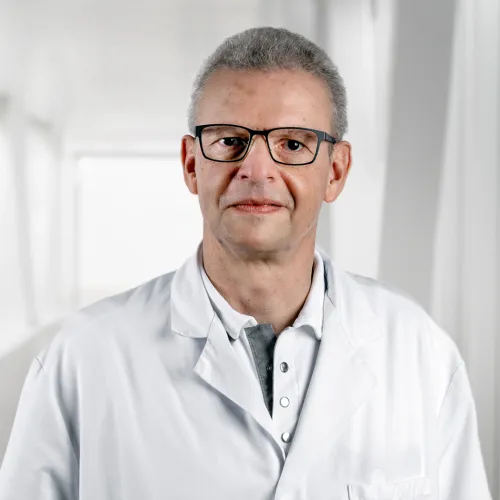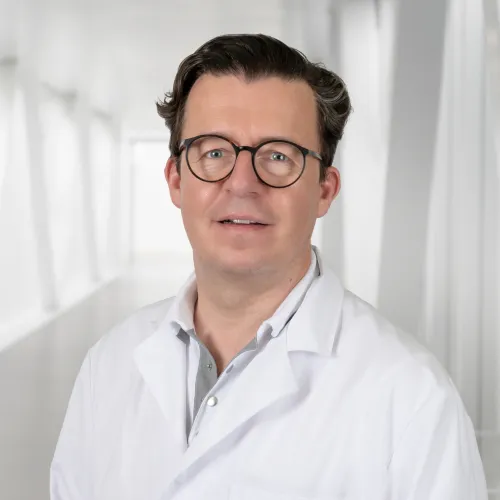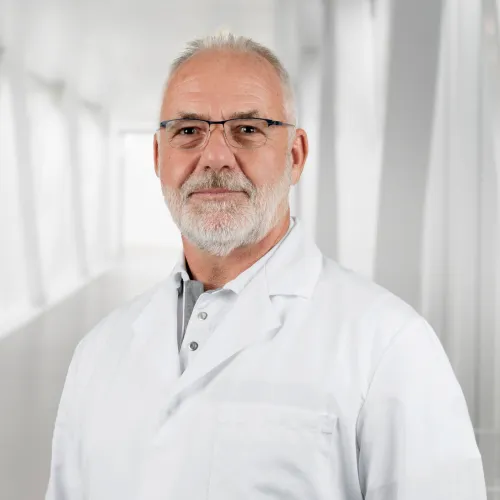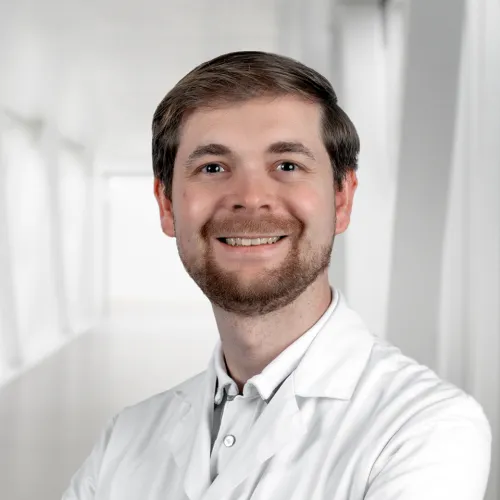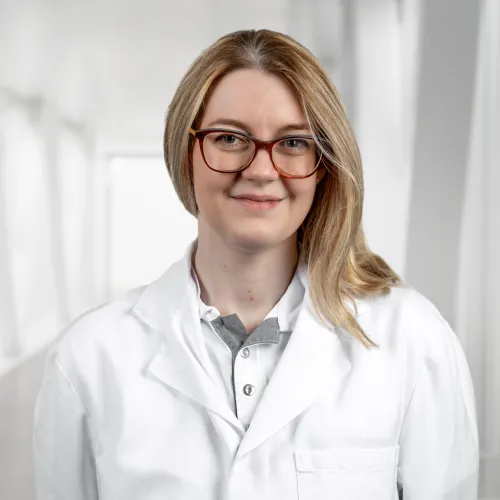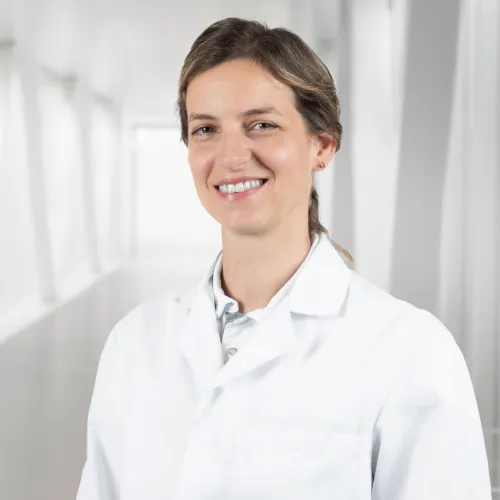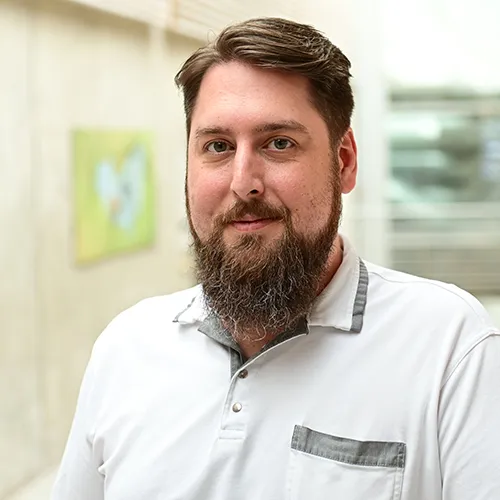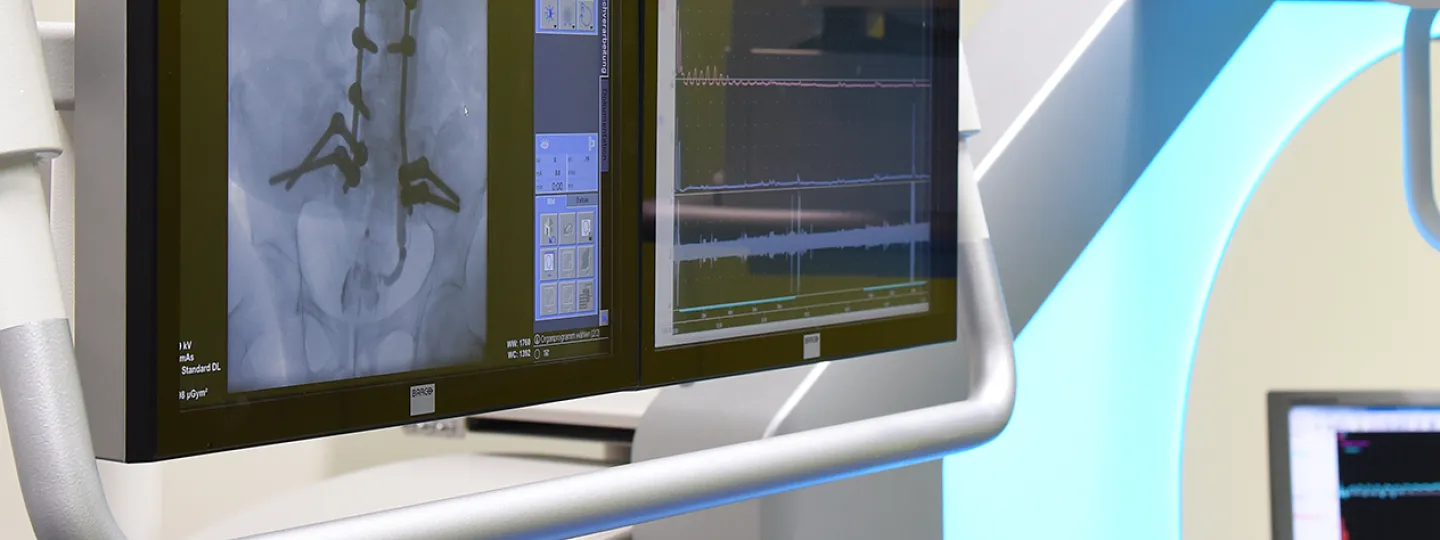
Neurourology
What is neurourology?
The term neurourology refers to diagnosis of and therapy for dysfunctions of the bladder and sphincter muscle, as well as sexual dysfunction. This is due to the defective nerve supply to the organs in question. Dysfunctions of the urinary tract occur as part of many clinical pictures, in particular in the event of a damaged spinal cord, such as with paraplegia or a meningomyelocele.
Neurological diseases (e.g. multiple sclerosis, Parkinson's disease and stroke), metabolic diseases (e.g. diabetes mellitus) and injuries to the nerves (e.g. following a disc prolapse) can also cause neurogenic bladder and sexual function disorders.
Patients
What do we treat?- Urine leakage
- Bladder function disorder
- Urinary tract infections
- Pain in the lesser pelvis
- Sexual function disorder/fertility issues
Referring doctors
- Neurogenic and non-neurogenic bladder function disorder
- Urge, stress and mixed incontinence
- Unclear/idiopathic bladder function disorder
- “Pelvic pain syndrome”
- Diseases of the outer genital area
- Benign prostatic hyperplasia (BPH), voiding disorder, residual urine problems
Disease patterns
- Female and male incontinence
- Bladder function disorder arising from all neurological diseases such as multiple sclerosis, Parkinson’s disease, or spinal cord injury
- Unclear bladder function disorder
- Bladder voiding disorder with residual urine
- Urinary tract infections
- Pain conditions in the lesser pelvis
- Sexual function disorder
- Erectile dysfunction
- Fertility disorders
Diagnosis
- Complete imaging of the upper and lower urinary tract (sonography and conventional radiology)
- Video urodynamics
- Endoscopy of the urinary organs (flexible cytoscopy, ureteroscopy and ureterorenoscopy)
- Transrectal ultrasound and prostate biopsy
- Fertility assessment including semen analysis, TESE, MESA
- Anorectal manometry
- Radiological examinations, MRI and CT in collaboration with Radiology
- Neurological (including neurophysiological) assessment in collaboration with Neurology
- Diagnosis of pelvic pain in collaboration with Pain Therapy
- Homeopathy in collaboration with SHI House, Zug
Therapy
Nonsurgical therapy:
- Pelvic floor training/biofeedback
- Non-surgical medical therapy
- Behaviour training/urotherapy
- TENS (percutaneous electrical stimulation)
Minimally invasive therapy:
- Installation therapy (EMDA)
- Botox injections (bladder, sphincter muscle)
Surgical therapy:
- Outer genital area: Circumcision, hydrocele spermatocele resection, vasectomy, testicle removal in the event of malignant diseases
- Transurethral: TUR bladder, TUR prostate, bladder neck incision, sphincterotomy, uretrotomia interna, stent insertion, bladder stent lithotripsy, ureterorenoscopy, insertion of DJ tubes, reflux treatment
- Sacral neuromodulation
- Artificial sphincter (bulbar, bladder neck), penile prostheses
- Urethra surgery (reconstruction with buccal mucosa, end-to-end anastomosis)
- Incontinence surgery: transobturator and vaginal tapes, plastic surgery to create a fascial sling
- Ileum augmentation of the bladder, ileum conduit, bladder augmentation with continent stoma
- Bladder stimulator including sacral nerve deafferentation (Brindley)
Consultancy and urotherapy
- Instructing intermittent self- or external catheterisation for patients, relatives and nursing specialists (Spitex)
- Urotherapy, pelvic floor training and biofeedback training
- Advice on how to use aids, urinal condom advice, catheter advice, stoma advice, stoma therapy
- Sexual advice, fertility assessments (in collaboration with KWZ Baden)
- Fertility diagnosis, sperm analysis
Research
- Coordinated research with the Clinical Trial Unit
- Multi-centre research projects
- Research objective: Improving bladder function and quality of life for patients
Opening hours
Monday to Friday
8 am to 12.30 pm
1.30 pm to 5 pm
In case of emergencies, please contact the main office on T. +41 41 939 54 54
Werden Sie jetzt Mitglied und erhalten Sie im Ernstfall 250 000 Franken.
